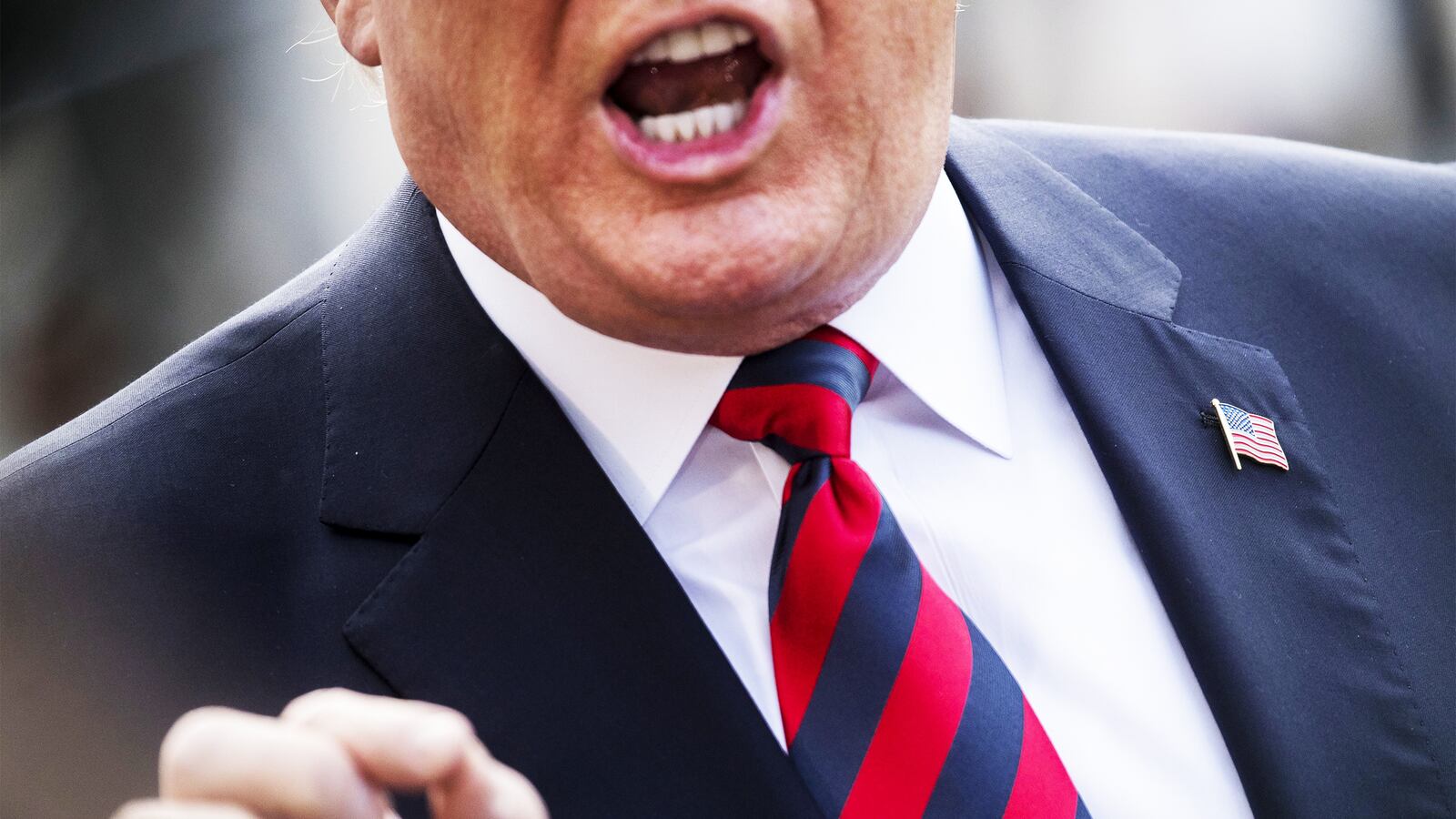In a now famous letter to special counsel Robert Mueller, President Trump’s lawyers made the provocative assertion that the president can never be guilty of obstruction of justice, even if he thwarts an investigation into his own possible wrongdoing. The implications of Trump’s position are vast. If the president cannot obstruct justice, what other crimes can he commit with impunity?
According to Trump’s attorneys Marc Kasowitz and John Dowd, “It remains our position that the President’s actions here, by virtue of his position as the chief law enforcement officer, could neither constitutionally nor legally constitute obstruction because that would amount to him obstructing himself, and that he could, if he wished, terminate the inquiry, or even exercise his power to pardon if he so desired.”
This is an almost unprecedented assertion of presidential power, nearly on a par with President Nixon’s claim (after he resigned from office) that “when the president does it, that means that it is not illegal.”
Even putting Nixon’s grandiosity aside, Trump’s own assertion takes us far beyond the Mueller probe. After all, the president is not only the nation’s “chief law enforcement officer,” Article II of the Constitution assigns him the “executive power of the United States,” which includes the conduct of foreign affairs. Given Trump’s theory, a question must be asked: Can the president commit treason?
Article III of the Constitution defines treason very narrowly, providing that “Treason against the United States, shall consist only in levying War against them, or in adhering to their Enemies, giving them Aid and Comfort.” Short of a declaration of war (a power that belongs to Congress under Article I), it is the president who determines the enemies of the United States. Therefore, under the Trump manifesto, it appears that a president could freely give aid and comfort to a hostile nation, even in the midst of an armed conflict, simply by declaring that it is not an enemy of the U.S.—assuming that Congress has not declared war (which has not happened since 1941).
If the chief law enforcement officer has carte blanche to define obstruction of justice (thus allowing him to derail investigations at will), then the chief foreign policy officer must have the same authority to determine which nations are and are not our enemies (thus allowing him to give aid and comfort to the foreign power of his choice). That is obviously an absurd outcome, but it is virtually compelled by the logic of the Kasowitz and Dowd letter, which makes the president the ultimate decider of the legality of his own actions.
We know from the constitutional text, however, that a president can indeed commit treason, as that is one of the specified grounds for impeachment, along with bribery and high crimes and misdemeanors. And if the president can commit treason, despite his authority over foreign policy, he can also commit obstruction of justice, per the Mueller investigation, his power over law enforcement notwithstanding.
Unlike countries where government leaders have unfettered power to announce, direct, and disregard the law—Iran, Venezuela, North Korea—the United States is a constitutional democracy, where even the highest elected official is subject to the same laws as every other citizen. Trump has already articulated an expansive view of treason when it comes to other people, having called congressional Democrats “treasonous” for failing to clap at his State of the Union Address. Alas, it is not too farfetched to imagine that he might try to excuse, or even pardon, himself for all manner of conduct far worse than insufficient applause.
Fortunately, Trump’s sweeping view of presidential supremacy is contradicted by reason, common sense, and the Constitution itself.






